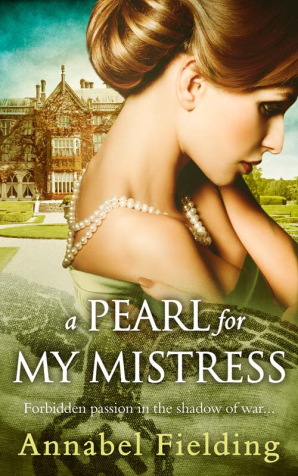Both Hester and Sophie are trying to escape. Hester dreams of travelling. She has left her family and her home, abandoning her working class vocabulary and Northern accent to become the perfect lady’s maid. Sophie longs for independence, to free herself from the rigid shackles of her aristocratic upbringing. In trying to escape, they find each other. But it’s 1934 in England, so can their relationship survive the threat of war, financial instability, and slander?

When I began this book I imagined it would be an easy read; your average romantic novel. How wrong I was. This book is so much more than a love story. Yes, the pace nips along nicely and the story is totally immersive, but the historical context adds great depth and intrigue, and the prose is beautiful, elegant, and expressive.
This book is not merely set against a backdrop of the 1930s, but is completely immersed in the time. Fielding’s writing is so evocative that it’s easy to imagine every last detail of life in 1930s England. A Pearl for My Mistress is clearly thoroughly researched, and the historical context is effortlessly intertwined with the plot. Fictional narrative merges with real-life events and characters, moving seamlessly from intricate details of high society life and working class drudgery to broader political themes. While the details are intricate and informed, they never overpower the story. The political climate of the era is profoundly complex, and so the book benefitted from a range of viewpoints. I imagine Lucy, given her support of the Blackshirts, is a somewhat divisive character, but her motivations are perfectly justified, even, at times, sympathetic.
My only gripes were very minor—the commitment to telling the story in the voice of both Hester and Lucy meant some immersion was lost when they were together and the reader had to jump between the two perspectives. I was sad, too, that Hester faded a little into the background towards the last third of the novel.
There’s so much to love about this book: the vividly described historical context, the convincingly flawed characters, the sensual, sentimental, and oh so relatable descriptions of love (which Fielding describes beautifully as like “velvet”). I also loved Fielding’s descriptions of writing and reading, and the power of words and legends to inspire and even control. Fielding’s passion for the era and for the writing process itself is infectious. This is no simple romance, but a story about misplaced trust, self-destructive behaviour, and how characters can survive and thrive against manipulation on a personal and political scale.
Favourite quotation: “Lucy Fitzmartin lay in the darkness, feeling absolutely no inclination to sleep. Her mind was ablaze with stories, with thoughts, with possibilities. She could feel the spectres of a thousand plots at her fingertips. Words flared up in her head, colliding and intertwining with one another, forming sentences and paragraphs of the stories yet to be written. Now she had someone to read them.”
Annabel Fielding, A Pearl for My Mistress (HQ Digital, 2017)
Thank you to Annabel Fielding and HQ Digital for a copy in exchange for an honest review.
